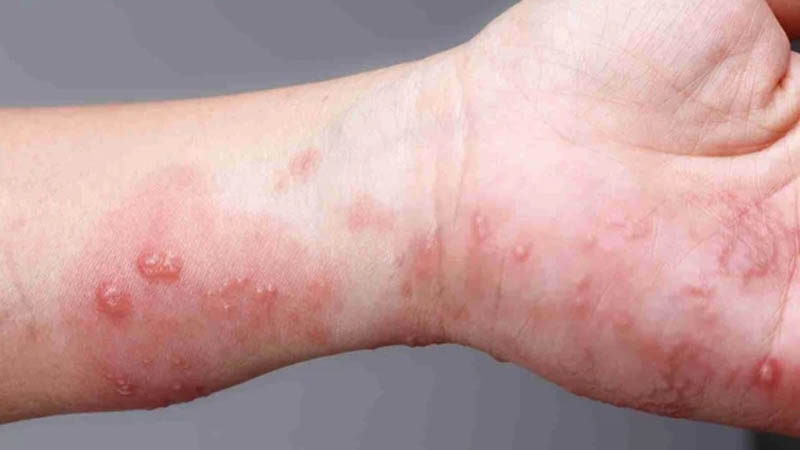Study Finds that Dietary fibre can help with skin allergies

(CREDIT: Medical Dialogues)
An emerging gut-skin axis study from Monash University discovered that microbial fermentation of dietary fiber in the gut can prevent allergic skin illness. The study may result in new ways to treat or prevent allergies.
Together with Swiss colleagues at the University Hospital of Lausanne (CHUV), Professor Ben Marsland of the Central Clinical School’s Department of Immunology showed that the fermentation of fiber in the gut by bacteria and subsequent production of short-chain fatty acids (SCFAs), particularly butyrate, protected against atopic dermatitis in mice.
The study was published in the journal Mucosal Immunology.
Although the impact of the gut microbiome on the immune system is widely known, the impact on the skin has received less attention.
“Previous work from our group, and others, has focused on the local health benefits of SCFAs in the gut as well as at distal sites such as the lung and cardiovascular system,” Professor Marsland said. “We wondered if this might also extend to the skin, which is an area that has not really been investigated.
“People speculate that diet can influence skin health, but there is not a great deal of science behind this.”
The researchers fed mice a diet high in fermentable fiber or gave them purified SCFAs. “This treatment was profoundly protective against allergic skin inflammation,” Professor Marsland said.
It only took a few minutes for the butyrate to reach the skin, where it stimulated keratinocytes to mature and produce the essential structural elements needed for a healthy skin barrier. They labeled the butyrate with isotopes and followed it in the body.
“The upshot of this was that the skin barrier was fortified against allergens – we were using house dust mite allergens – that would normally penetrate the skin barrier, activate the immune system, and start an allergic reaction in these models,” he said.
“It turns out the immune system was secondary to this skin barrier function.”
A skin barrier that is actively improved may offer protection against environmental exposures that lead to allergies and potentially even other skin conditions that are supported by a damaged or weak skin barrier. He claimed that SCFAs may be used externally or orally, avoiding the digestive tract.
“The fact that short-chain fatty acids can be given topically and are well-tolerated opens up possibilities for the development of preventative strategies or disease-modifying interventions – that represents the most significant translational potential of our research.”
One thing to consider is if this would benefit kids who are susceptible to the so-called “Atopic March,” a chain reaction of skin allergies that can lead to food allergies and asthma.
The investigation was carried out over five or six years by Professor Marsland and members of his Melbourne-based team in collaboration with researchers at the University Hospital of Lausanne, where he had previously worked before joining the Monash faculty. Aurélien Trompette, a Swiss citizen, served as the main author.




